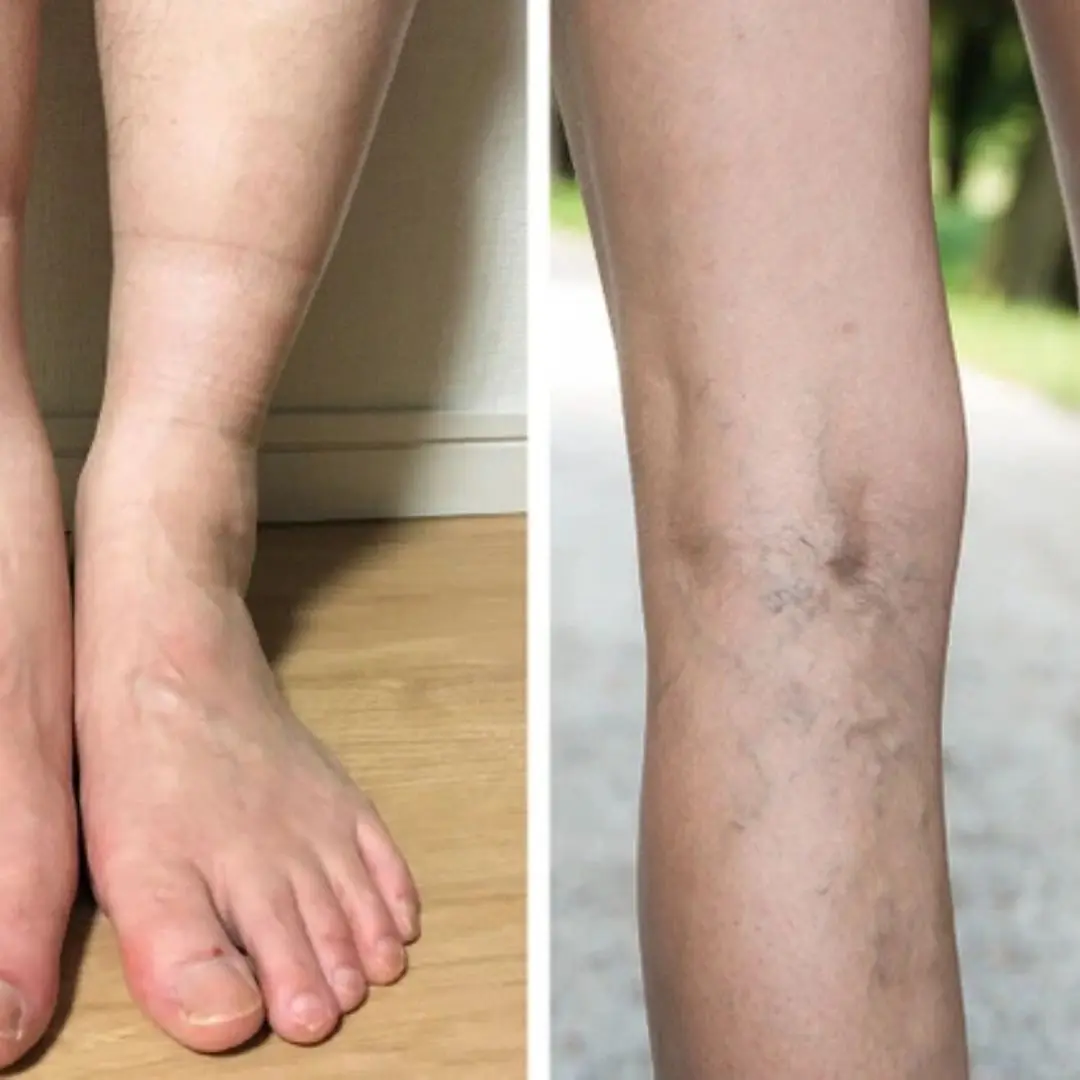
If you see this phenomenon in your feet, go see a doctor for diabetes.

Type 2 Diabetes: 4 Foot Sensations That May Signal High Blood Sugar
Type 2 diabetes is a chronic condition in which unstable blood sugar levels can cause damage throughout the body.
Typically, these complications often concentrate in the feet. There are four sensations in the feet that may indicate high blood sugar levels — a sign of type 2 diabetes.
In the early stages, diabetes symptoms are usually mild, so many people don’t pay much attention.
If you notice a wound, see a doctor immediately.
However, when blood sugar levels rise to a dangerous level, the body begins to suffer more serious harm. Acute symptoms tend to appear later — and they often show up in the feet.
Professor Andrew Boulton, President of the International Diabetes Federation, explained that there are several signs suggesting something may be wrong with a diabetic person’s feet.
“At first, there’s just a feeling that something isn’t quite right. Then come sensations such as numbness, tingling, pins and needles, or a crawling feeling — sometimes burning or extreme cold,” he told Express.
What other symptoms may appear in the feet?
Professor Boulton noted that other warning signs include dry skin, calluses on the balls of the feet, and foot wounds.
Among these, he emphasized that wounds are the greatest concern — if you see one, you should seek medical attention immediately (Express).
Because it can be difficult to examine your own feet, you can use a mirror to check the soles, or ask someone to help. In addition, foot temperature can also serve as a warning sign, Professor Boulton added. Check whether your feet feel unusually warm to the touch.

What Causes High Blood Sugar Levels?
For someone with type 2 diabetes, there are two main causes:
either the pancreas doesn’t produce enough insulin, or the insulin produced isn’t properly used by the cells.
Insulin is a hormone that regulates blood sugar levels.
Without proper insulin function, blood sugar can rise uncontrollably.
Essentially, blood sugar isn’t inherently bad — it provides vital energy for cells to function.
However, when blood sugar remains high for a long time, it can damage the body and lead to several complications, such as foot problems and an increased risk of heart disease, according to Express.
What Should You Do?
The main response to persistently high blood sugar is to change unhealthy lifestyle habits.
Two key factors play the biggest role in blood sugar control: diet and exercise.
People with diabetes should limit certain foods and follow these recommendations:
-
Eat a variety of foods — including fruits, vegetables, and small portions of starchy foods
-
Keep sugar, fat, and salt intake to a minimum
-
Have three regular meals daily — don’t skip breakfast, lunch, or dinner.
News in the same category


Juniper: 20 remarkable benefits and how to use it

4 Health Problems Your Feet Could Be Telling You Through Sock Marks

A 52-Year-Old Woman Di.ed from a Stro.ke: Middle-Aged People, Stop Doing These 7 Things

Banana Flower Superfood: Juice, Recipes & Powerful Health Benefits You Didn't Know About

Eating garlic is very good, but for these 4 groups of people, don't touch it

Gallstones are a common disease, affecting 8-10% of the population. Here are the symptoms and treatments

Important News for Everyone Who Loves a Daytime Nap

A 62-Year-Old Man Developed Col.on Can.cer Due to 3 “Har.mless” Daily Habits That Many People Have

Preventing Stroke At Any Age: 3 “Don’ts” After Meals—And 4 “Don’ts” Before Bed

Stop using these bottles and containers for food storage

10 Foods You Should Never Eat on an Empty Stomach

4 Types of Itching That May Signal Can.cer Cells Are “Eating Away” at the Body

25-Year-Old Groom Dies from Acute Liver Failure After Eating Chicken

4 types of people who should avoid eating cabbage

Don’t throw away avocado pits

Spotting this plant in your garden is like discovering hidden gold — whatever you do, don’t throw it away!

Recognizing mini-str.oke symptoms: A crucial step in str.oke prevention

My MIL Clogged Our Only Toilet During Thanksgiving Dinner, Then Left Without Saying a Word – So on Christmas I Taught Her a Lesson
News Post

11 Little-Known Secrets of Purslane: A Wonder Plant in Disguise

Why You Might Feel a Light Electric Sho.ck When You Touch Someone

'You're Nothing but a Parasite': My Husband Demanded I Get a Job & Care for 3 Kids – Until I Turned the Tables on Him

I Paid for a Homeless Man's Groceries – The Next Day, He Greeted Me as a CEO at My Job Interview

My Birth Family Contacted Me After 31 Years with an Outrageous Request — Am I Wrong for How I Reacted?

Doctor’s Warning: 3 Foods You Should Never Eat Within 3 Hours Before Bed

She Kept Crying About Pain in Her Bottom — What the Doctor Said Left Her Parents in Shock

5 Changes in Your Feet That Signal Your Li.ver Is “Exhausted” It Might Have Been Can.cer for a Long Time

Juniper: 20 remarkable benefits and how to use it

My Sister Wore a Wedding Dress to My Wedding Because She Thought I'd Upstage Her – So I Taught Her a Lesson She'll Never Forget

4 Health Problems Your Feet Could Be Telling You Through Sock Marks

My Father Burst Into the Church and Shouted, 'The Wedding Is Canceled!' – I Went Pale When I Learned Why

Father of My Baby Mocked Me for Picking $3 Buns for Dinner at the Grocery Store — Next Moment, My Future Was Rewritten

A 52-Year-Old Woman Di.ed from a Stro.ke: Middle-Aged People, Stop Doing These 7 Things

If Your Parent Shows These 4 Signs, They May Be Nearing the End of Life. Prepare Yourself for What’s to Come

When the Toughest Table Listened: The Boy Who Needed Heroes

My Stepmom Destroyed My Late Mom’s Prom Dress – But She Never Expected My Father Would Teach Her a Lesson

The Silent Party: When My Twin Grandmas Turned 100 And Locked Us Out Of Their World
